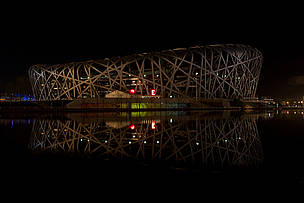Earth Hour
A call to stand up, to take responsibility, to get involved and lead the global journey to a sustainable future.
Earth Hour started in 2007 in Sydney, Australia when 2.2 million individuals and more than 2,000 businesses turned their lights off for one hour to take a stand against climate change. Only a year later and Earth Hour had become a global sustainability movement with more than 50 million people across 35 countries participating. Global landmarks such as the Sydney Harbour Bridge, CN Tower in Toronto, Golden Gate Bridge in San Francisco, and Rome’s Colosseum, all stood in darkness, as symbols of hope for a cause that grows more urgent by the hour.
On Saturday 27 March, Earth Hour 2010 became the biggest Earth Hour ever. A record 128 countries and territories joined the global display of climate action. Iconic buildings and landmarks from Asia Pacific to Europe and Africa to the Americas switched off. People across the world from all walks of life turned off their lights and came together in celebration and contemplation of the one thing we all have in common – our planet.
Working with our various partners, WWF China brought Earth Hour to at least 30 cities across the country. In addition, we called on the Chinese public to make real changes in their daily life by holding an Earth Hour Low-carbon lifestyle week from Monday March 22 to Friday march 26.
Earth Hour 2011 will take place on Saturday 26 March at 8.30PM (local time). It will continue to be a call to action to every individual, every business and every community throughout the world.
WWF China is calling on
On Saturday 27 March, Earth Hour 2010 became the biggest Earth Hour ever. A record 128 countries and territories joined the global display of climate action. Iconic buildings and landmarks from Asia Pacific to Europe and Africa to the Americas switched off. People across the world from all walks of life turned off their lights and came together in celebration and contemplation of the one thing we all have in common – our planet.
Working with our various partners, WWF China brought Earth Hour to at least 30 cities across the country. In addition, we called on the Chinese public to make real changes in their daily life by holding an Earth Hour Low-carbon lifestyle week from Monday March 22 to Friday march 26.
Earth Hour 2011 will take place on Saturday 26 March at 8.30PM (local time). It will continue to be a call to action to every individual, every business and every community throughout the world.
WWF China is calling on
- Individuals/volunteers
- Communities
- Schools
- Business
- Governments

The iconic National Stadium - or Bird's Nest - moments before Earth Hour on March 28, 2009. Beijing, China

Lights go out on the Bird's Nest for Earth Hour, WWF's global climate change awareness campaign. March 28, 2009, Beijing

